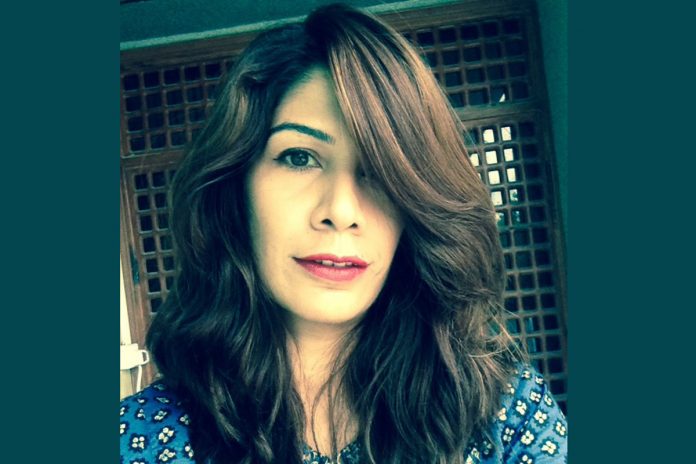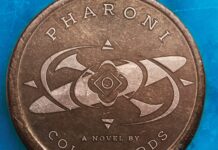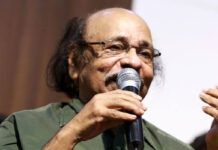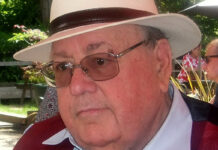By Rajesh Subramanian
Dr. Sabyn Javeri is an Assistant Professor at the Arzu center for Literature and Languages at Habib University. She has a Masters from Oxford University and a doctorate from the University of Leicester. She is an award-winning short story writer and the author of bestselling political novel ‘Nobody Killed Her’. Her texts on creative writing have also been widely published. Dr. Javeri is interested in rediscovering South Asian creative heritage and its literary past. Her research is currently exploring the works of forgotten literary heroes of the subcontinent and developing a discourse related to cultural identity through creative writing.
In this freewheeling interview with Modern Literature, Sabyn Javeri answers a wide array of questions on her writing and literature in general.
What, in your opinion, are the distinctive features of South Asian literature?
Literature, I feel, is not limited to a region. Good writing is bigger than that. It is, perhaps, publishing which tends to slot literature into compartments. If you remember, there was a time when Indian writing was all about the exotic and Pakistani writing heavily political-simply because that is what the publishers chose to present to the readers.
If you are referring to the South Asian cannon of literature as an academic discipline, then I suppose the most telling feature of South Asian literature is the effects of colonisation and how that has shaped the use of the English language in fiction. The rise of South Asian literature in the English language and the fall of the vernacular, has given way to the question most asked of these writers: why do you write in English? To which I feel the answer should be that they did not choose to write in English but that English chose them. One cannot ignore the far-reaching effects of colonialism that gives South Asian literature a modern critical edge with a lot of writing being political or satirical, questioning and probing. Added to that, a unique and hybrid quality emerges when the writers fuse their own culture(s) with the language of the colonisers to take ownership of the English language. It is this camaraderie which I feel gives South Asian literature in English an interesting and unique twist.
You have studied creative writing and comparative literature. How would you evaluate a writing for its literary worthiness?
Although there is much stress on establishing Creative Writing as an academic discipline and most major universities in the West do offer undergrad and Master’s program in it, the challenge of assessing writing objectively has been a topic of great debate. Some level of intuitiveness as to what works and what doesn’t is inevitable when it comes to assessing a piece of creativity.
For me personally, it is not just about form and structure or narrative pace or well rounded characters. It has to have what Lorca refers to as Duende – that unique quality of passion and inspiration that sets it apart from others. I have often found this quality in raw and unpolished drafts- this promise of potential – that sadly fizzles out if the author lacks commitment to his/her craft.
Has literary criticism kept pace with the growth of various trends in modern literature? What trends in contemporary literature, in your opinion, require critical analysis?
I think one trend that has perhaps been overlooked is that of accessibility. With the influx of smart phones and social media and the mindless overload of information, literature too has changed. Books in recent years that have broken records are those which narrate at breakneck speed although many may argue that they are not literary works/literature. However I feel literature is a reflection of our times and can’t be limited to what is traditionally considered literary. This trend of accessibility, I feel, has been overlooked in terms of literary criticism or literary deconstruction although it continues to fascinate me both as a writer and as reader.
You have once mentioned that short story is your favourite format. Is it because of the themes you choose for your fiction or do you have any other reasons?
On a lighter note, I think I have a short attention span. Whether it is books or people, I lose interest very quickly and that is one reason the short story appeals to me- its length.
Seriously speaking I find the short story form more challenging as a writer and as a reader more immersive, mainly because it requires mastery of craft. It is much harder to pack more into a smaller space than it is to unfurl little by little in a longer form such as a novel. Also it reminds me of the tradition of Qissa and Afsana, a South Asian form of story telling that helps me translate the cultural hybridity of my narratives more accurately into English.
Who are your favourite authors?
My favourite authors are Ismat Chugtai for her witty and caustic satirical writings ; the German author, Julia Frank and US-Israeli Nicole Kauss for the beauty of their expression.
“Pakistan gave you roots and London, the wings to fly”. Had it been the other way round, how would your literary perspective have changed?
I don’t think I would have that raw political apathy, the sense of injustice or the urgency of expression had I grown up in a comfortable first world country. It was the contrast of the two cultures that prompted me to write. One of my first stories, And The World Changed, written when I was a newly married, living in London in harmony with my Indian neighbours, reminisces the Karachi of my parents and questions why this sectorial and ethnic hatred took roots. It questions extremism not at an international level but at a very grassroots level. I don’t think I would have been able to do that if I was an outsider looking in. Similarly my second big publication, in a London Magazine, Only in London, questions the immigrant experience of a liberal Pakistani unable to live up to the stereotype expectations of the West as an oppressed woman and at the same time finds herself unable to fit into the conservative Pakistani community of a ghetto-like neighbourhood.
Can a literary work remain “apolitical” ?
I think everything is political. Even the question you have just asked!
At the same time I don’t think it is a writer’s job to hold a mirror to the society. But I think if a writer writes something but deliberately makes it sterile and apolitical, then even that is a political act of non-resistance.
Have you ever experienced the “writer’s block” ? How do you overcome such periods?
I have not experienced a block as such for I believe writing is like any other sport; the more you do it the better you become at it. However lately, as I become more involved in academia, I feel I am unable to write as creatively as I used to. I feel a stiffness to my words that is perhaps the direct result of spending so much time reading and writing academic works.
How do you manage your professional role as an academician and as a writer? Do they both support each other?
In terms of research, yes. But in terms of writing, no. As an academic I have access to large reserves of archival materials but sadly academic writing suffocates my creativity. I find it very hard to come to surface to breathe when I try to write creatively after a full day’s work at the university. It is extremely difficult to switch modes. Frankly I think any job that requires a lot of critical cerebral engagement kills your creative spirit. I love day dreaming and sadly academia is all about pragmatism. I often wonder if I should have chosen a career as a firefighter or a gardener or a bus driver so that when I come home, my body would be tired but my mind would be fresh….for writing is all about fuelling your imagination.
















